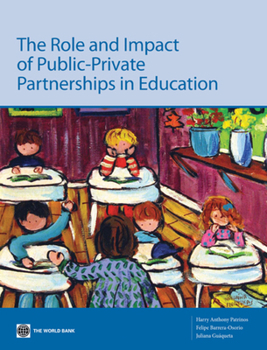The Role and Impact of Public-Private Partnerships in Education
Enhancing the role of private sector partners in education can lead to significant improvements in education service delivery. However, the realization of such benefits depends in great part on the design of the partnership between the public and private sectors, on the overall regulatory framework of the country, and on the governmental capacity to oversee and enforce its contracts with the private sector. Under the right terms, private sector participation in education can increase efficiency, choice, and access to education services, particularly for students who tend to fail in traditional education settings. Private-for-profit schools across the world are already serving a vast range of users--from elite families to children in poor communities. Through balanced public-private partnerships (PPPs) in education, governments can leverage the specialized skills offered by private organizations as well as overcome operating restrictions such as salary scales and work rules that limit public sector responses. 'The Role and Impact of Public-Private Partnerships in Education' presents a conceptualization of the issues related to PPPs in education, a detailed review of rigorous evaluations, and guidleines on how to create successful PPPs. The book shows how this approach can facilitate service delivery, lead to additional financing, expand equitable access, and improve learning outcomes. The book also discusses the best way to set up these arrangements in practice. This information will be of particular interest to policymakers, teachers, researchers, and development practitioners.
Format:Paperback
Language:English
ISBN:082137866X
ISBN13:9780821378663
Release Date:March 2009
Publisher:World Bank Publications
Length:97 Pages
Weight:0.70 lbs.
Dimensions:0.3" x 8.0" x 10.4"
Customer Reviews
0 rating





